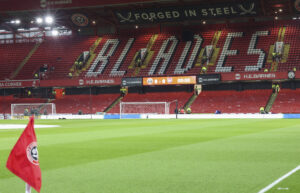When Barcelona edged past Real Valladolid 1-0 on Saturday, familiar problems were again evident. The Catalans once again struggled to get their faltering title challenge back on track and keep pace with rivals Real Madrid at the top of La Liga. From apparent unrest between manager Quique Setien and his players to the problems of an ageing squad and a flawed transfer model, these are troubled times for one of Europe’s most successful clubs.
Setien was only appointed as manager in January, but in the turbulent months since, it has become clear that he has already failed in his objective of transforming the club’s style of football away from a final third emphasis and a perceived dependence on Argentine great Lionel Messi, and back into the methodical and possession-oriented principles of old extolled by the likes of Pep Guardiola and Johan Cruyff.
Barcelona Are in a Crisis of Their Own Making
Setien Already On Borrowed Time
Where has it all gone wrong for the former Real Betis coach? For starters, he never had the confidence of the club’s hierarchy to action his vision in the first place. In December of last year, the club were publicly open of their courting of legendary midfielder Xavi, but so untrustworthy was the Al-Sadd manager of the direction in which the club is heading under president Josep Bartomeu and the rest of the club’s board that the Catalans were unable to prise the Spaniard away from Qatar.
This means they were forced to appoint a man who was far from their first choice, and even now after 19 games at the helm, the experienced Setien is still seen as something of a stop-gap, taking charge of a rapidly sinking ship until Barcelona finally succeed in appointing their preferred candidate. But with Xavi rumoured to be reluctant to take the job until Bartomeu is no longer the club’s president, Setien is being forced to continue under highly unfavourable circumstances.
A Stale Squad
Then there is the issue of personnel. Setien needs his players to be on board with his ideas if he is to stop the rot, but with so many first-team regulars now into their 30s, the manager has been unable to persuade them to abandon their current way of playing and transition into a new one.
In Jordi Alba, Sergio Busquets, Ivan Rakitic, Gerard Pique, Arturo Vidal, Luis Suarez and Lionel Messi, seven established players in Setien’s best 11 are aged between 31 and 33. It appears simply too late to revolutionise their way of operating on the pitch, even if it is back towards a style that was previously established within the fabric of the football club.
Indeed, it was after a dismal defeat by Valencia on 25th January that Setien abandoned his attempted revolution and reverted back to the 4-3-3 formation utilised by each of his predecessors dating back to when Luis Enrique took over in 2014. To make matters worse, Setien clearly feels that he cannot count on his players, and the feeling appears to be mutual. Last month, Barca were held to a 2-2 draw by Celta Vigo, and images of Setien and his assistant Eder Sarabia being ignored by the players during a mid-match drinks break went viral as they conveyed the message that the manager has lost the dressing room and finds himself at odds with his playing staff.
A Flawed Transfer Model
Perhaps even more remarkably, the same problems appear all over again when it comes to the issue of transfers, arguably the most important aspect to get right for so many top-tier clubs across Europe.
With its famed La Masia academy not churning out ready-made first team players with the regularity of the past – teenager Ansu Fati is an exception to this trend, but was sent off in a lacklustre 1-0 home win over Espanyol last Wednesday – Bartomeu needs to ensure that his club are bringing in some of the brightest young talents in order to refresh and rejuvenate the squad, but he appears to be doing the opposite and allowing the problems to remain and worsen.
Recent transfer activity provides the perfect example, with Barca confirming a swap deal with Juventus to bring in 30-year old Miralem Pjanic. The highly-rated Arthur – a player seven years Pjanic’s junior – is going the other way so Barca can facilitate the deal and avoid any potential ramifications relating to Financial Fair Play. Having to conduct their transfer dealings in this way is potentially disastrous for the club, and does nothing to brighten its prospects for a future without Messi.
Then there is the Neymar saga. Barcelona have been desperate to bring the Brazilian back to the club, seemingly to placate disgruntled figures, Messi and Suarez, as much as any other factor, ever since his acrimonious split from the club in 2017 took him to Paris Saint-Germain for a world record £200 million. Upon realising that they simply cannot afford to reacquire their former player’s services, the Catalans instead elected to splash £107 million on Antoine Griezmann from Atletico Madrid, despite the player’s preference to operate in a similar way to Philippe Coutinho on the pitch, another big-money signing who failed to fit in and could not be shoehorned into the side.
With ill-thought decisions appearing so regularly at board level, it is now easy to see why Xavi harbours such doubt towards the prospect of returning to a club which he served with such dignity as a player. Instead, Setien has inherited something of a poisoned chalice in taking on the manager’s job he has occupied since the turn of the year. This year has been a challenge so far in so many ways outside of football, but for Barcelona, the challenge of finding their way out of a crisis of their own making shows no sign of getting any easier.
Main Photo






